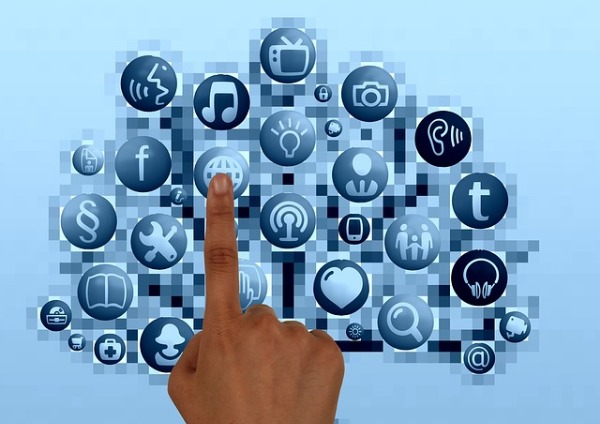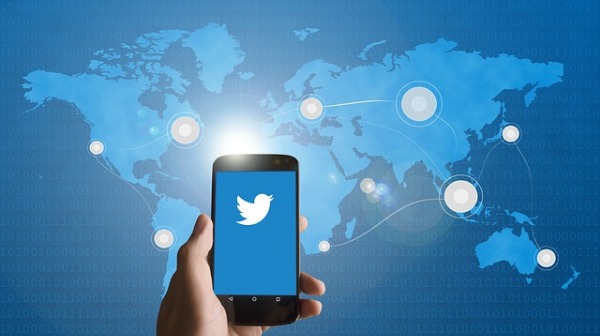 There's no question that social media is increasingly ubiquitous across age groups and industries. The drivers have been the rapidly increasing ubiquity of smartphones and expanding WiFi networks that gave rise to the many social media networks. many of those platforms have fallen away and a handful of them, like Instagram and Facebook, dominate.
There's no question that social media is increasingly ubiquitous across age groups and industries. The drivers have been the rapidly increasing ubiquity of smartphones and expanding WiFi networks that gave rise to the many social media networks. many of those platforms have fallen away and a handful of them, like Instagram and Facebook, dominate.
And then there is the education world...
A 2015 Pew Research Center found that 71 percent of teens use more than one social networking site, and 24 percent are online “almost constantly.” Schools have reacted as they often do with new technology. They try to stop it from entering the classroom. Phone-off policies have been used for several decades. Students sneaking a look at their Instagram account in class are treated in the same way we would have treated a student sneaking a look at a comic book in the 1950s.
Of course, there were teachers who tried to incorporate phones and even social media into their lessons. Having students do searches, following a class hashtag, polling apps or using the photo and video capabilities to record experiments or document learning are just a few ways teachers have made the enemy mobile device more friendly.
But those teachers and classrooms are still the exception. I regularly see articles in edtech journals about a teacher using social media and it is treated as innovation when it is not. I understand the headlines though, because it is still at the fringes of classroom pedagogy.
The concerns in K-12 are understandable and that is a different world when it comes to privacy, cyberbullying and other issues. But social media in higher education classrooms is just as limited.
So, am I saying we all need to include more social media in our courses? Yes, but with the caveat that it should be limited - as with other mediums such as film/video - to true educational applications. Using social media to be trendy is stupid.
Social media can be a way to teach students to think critically and creatively about the world and their place in it. I feel that we do have an obligation to teach students about the intelligent use of their devices and apps. Successful networking, whether it be via devices or face-to-face, is always listed as a skill employers want. As mobile social media continues to dominate our culture, its intelligent use for marketing or more personal communication becomes a must-have skill.
A page at accreditedschoolsonline.org lists a number of resources and lesson plans that teachers can use. It is important to use lessons that would naturally occur in your curriculum, rather than injecting social media lesson into what is probably an already crowded curriculum. How can social media be the tool or vector to teach what you want to teach?
The way that rather than just have students read a famous speech or Shakespeare scene or poem, you can have them experience it as a video/audio, we can find new ways to experience content via social media.
Two examples from that resource page:
Flickr Gallery is a lesson using curated (in itself, an important concept) Flickr galleries to teach students about selecting useful images, critical thinking about image presentation, and ideas of intellectual property and copyright.
I know that some of my colleagues would laugh at the idea of using Twitter for Research (some still don't understand why students need to be taught to properly use Wikipedia) but it is certainly used in that way by journalists and other professional writers.
Educators need to be more aware of the social learning aspects of websites that they might not think of as "social media." For example, Goodreads is a free site that allows people to search its literary database, annotations and reviews and curate reading lists, connect with other readers and even take quizzes about books or do a Q&A with an author. This is not limited to fiction. Non-fiction groups are there too. My own Goodreads list has connected me to readers of my reviews and led to conversations about authors and books.
And other sites are probably not familiar to many teachers. Yes, you will need to think outside the platform's probable original uses and applications and hack them for your educational needs. Kahoot! is a game-based trivia and quiz platform that obviously provides a way for teachers - and even better, students - to create and share their own quizzes within the classroom. Wakelet is a free social media curating (I do like that skill) platform that allows you to collect information from around the web, including tweets, videos and photos. These collections can be private or shared, and users can add text of their own to their stories.
Should Social Media Be in the Classroom? Yes. How might you use sites like Reddit, Snapchat, SoundCloud or Twitch in your courses? An excellent topic for professional development.
 This month Twitter started removing tens of millions of suspicious accounts, especially those that are identified as bots and fake accounts.
This month Twitter started removing tens of millions of suspicious accounts, especially those that are identified as bots and fake accounts. There's no question that social media is increasingly ubiquitous across age groups and industries. The drivers have been the rapidly increasing ubiquity of smartphones and expanding WiFi networks that gave rise to the many social media networks. many of those platforms have fallen away and a handful of them, like Instagram and Facebook, dominate.
There's no question that social media is increasingly ubiquitous across age groups and industries. The drivers have been the rapidly increasing ubiquity of smartphones and expanding WiFi networks that gave rise to the many social media networks. many of those platforms have fallen away and a handful of them, like Instagram and Facebook, dominate.